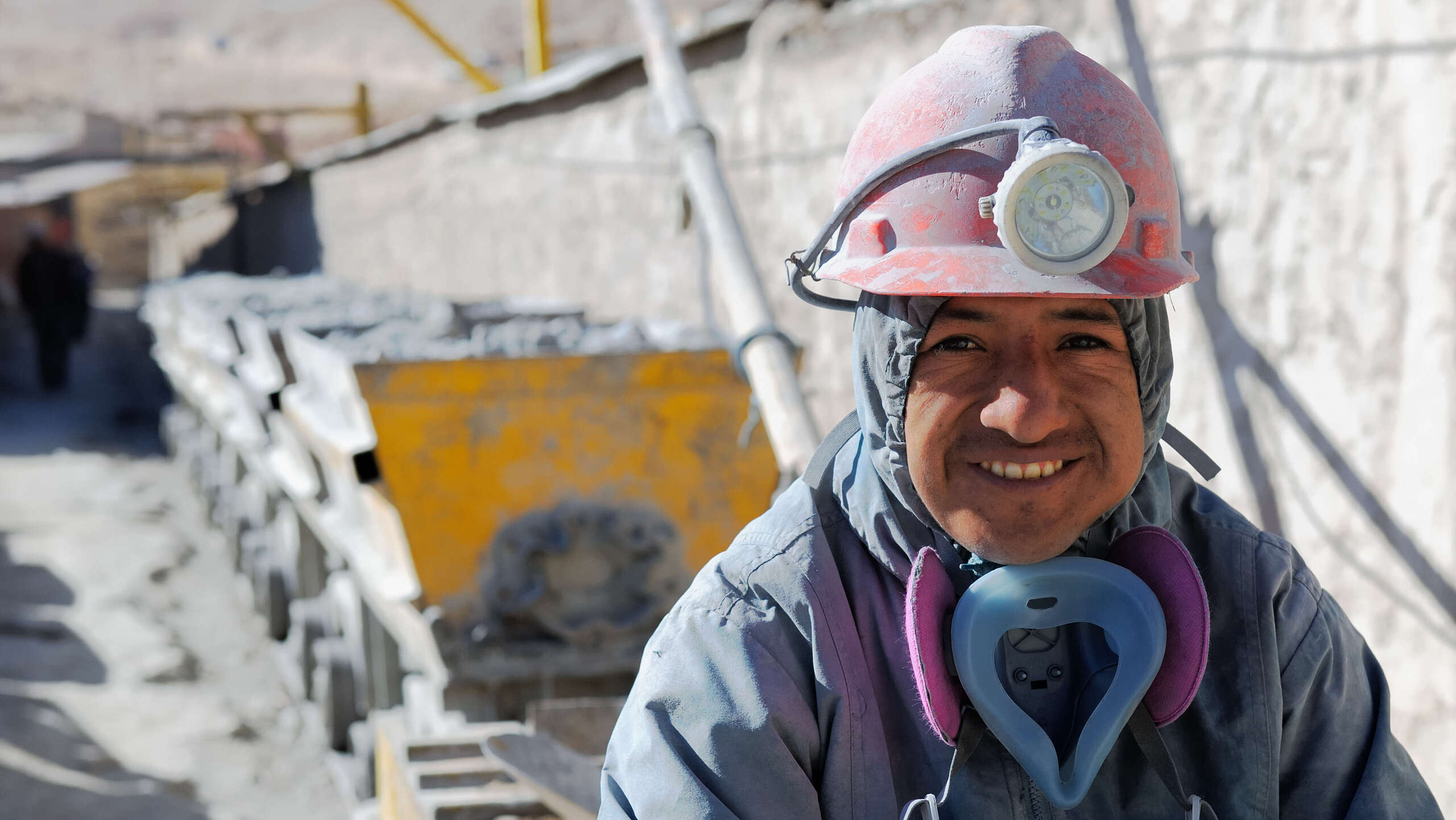Two important pillars for CNV Internationaal’s international trade union work include the acknowledgement of workers’ rights and even more so, their compliance. These worker rights (including union rights) are also called international labour standards. And although many countries have promised to respect these standards, real life often shows otherwise.
Labour rights are human rights
First of all, labour rights are part of the Universal Declaration of Human Rights. Article 23 establishes the following:
Article 23
- Everyone has the right to work, to free choice of employment, to just and favourable conditions of work and to protection against unemployment.
- Everyone, without any discrimination, has the right to equal pay for equal work.
- Everyone who works has the right to just and favourable remuneration ensuring for himself and his family an existence worthy of human dignity, and supplemented, if necessary, by other means of social protection.
- Everyone has the right to form and to join trade unions for the protection of his interests.

What’s going on?
In addition to the rights established in the UN Declaration of Human Rights, the ILO (International Labour Organisation) has also laid out fundamental labour rights or international labour standards.
The ILO is part of the United Nations.
The ILO brings together governments, employers and employees in order to set labor standards and create programs to promote decent work for everyone.
Every country which ratifies ILO agreements (conventions) is bound to uphold these internationally recognised (fundamental) labour standards. On the website of the ILO, you can find whether your country has ratified the conventions.
However, CNV Internationaal remains concerned about how these standards are being followed though on. The rights of workers in international supply chains, like those of the textile, mining, palm oil, and sugar industries, are being seriously violated.
CNV Internationaal often receives messages regarding serious threats to union people, or about workers who have been fired because they joined a union. Every year, in Colombia and Guatemala, a number of union members are being murdered.
Freedom to organise
This encompasses freedom for workers to be represented and to organise a trade union. In places where trade unions aren’t officially recognised, the employer should facilitate other forms of independent organisation and representation for the workers. (ILO Convention 87).

The right to collective bargaining
Worker representatives must be qualified and prepared to negotiate and talk with decision makers (ILO Convention 98 and 135, OECD Guideline IV Art. 8).

No forced labour or slavery
Workers must be free to choose their work/profession; all forms of slavery and forced labour shall be abolished (ILO Convention 29 and 105).

No child labour
Children under the age for compulsory education (15 years, some countries 14 years of age) cannot be hired for or participate in work situations. Children already in such situations must be removed and allowed to go to school (ILO Convention 138 and 182 and OECD guidelines).

No discrimination
There will be no discrimination among workers (ILO Conventions 100 and 111).

Living wage
Workers will be paid a living wage, meaning their wage must cover the basic needs of an average family (ILO Conventions 26 and 131).

Occupational safety and health
Workers have the right to a work environment which is not detrimental to their safety and health (ILO Convention 155 and recommendation 164).

No excessive overtime
Employers must adhere to a maximum number of working hours, in principle, not more than 8 hours a day and 48 hours a week. There should not be excessive overtime (ILO Convention 1).

Labour contract
Workers should be given employment security (ILO Tripartite Declaration of Principles Concerning Multinational Enterprises Art. 24-28).

Ratifications per country
These international conventions are legal instruments drawn up by the International Labour Organization (ILO). The ILO brings together governments, employers and employees in order to set labor standards and create programs to promote decent work for everyone. On the website of the ILO, you can find whether your country has ratified the conventions.
The OECD Guidelines and ILO Conventions contain the following additional rights for workers and obligations for employers:
- Relevant training must be made available to workers (ILO Tripartite Declaration Art. 2932).
- Workers have the right to file a complaint without risk of being dismissed, punished, or discriminated against (ILO Tripartite Declaration Art. 57 and 58).
- Workers have the right to receive information in a timely manner in relation to reorganisation, collective dismissal, and severance schemes (OECD Guidelines IV Art. 6).
- The right to organise may not be inhibited, punished or threatened, for example, by employers threatening to move the company. (OECD Guidelines IV Art 7).
- Local personnel should be employed and trained whenever possible and pay and labour conditions must be in line with comparable employers in the guest country (OECD Guidelines IV Art. 4a and IV Art. 5).
- Country specific labour legislation
Natlex: ILO Database of national labour, social security and related human rights legislation
What does CNV Internationaal do?
CNV Internationaal takes the following steps to improve labour rights:
- We show companies the advantages of doing responsible business in order to encourage them to negotiate for such practices in meetings for “Human Rights Due Diligence” (HRDD).CNV uses campaigns by/with consumers, unions, NGOs, and employer organisations to achieve this goal.
- We participate in various Dutch covenants for internationally responsible business practices. These have been agreed upon with companies, the government, unions, and social organisations. These covenants are important instruments for progress. The sectors included form an important entry point for interventions with multinationals and/or small to midsize businesses in these supply chains.
- We argue for the ratification and adherence to ILO conventions and formulate recommendations when rights are violated.
- We monitor whether governments are developing and implementing national plans of action regarding businesses and human rights in cooperation with European and national parliaments.
- We monitor negotiations for the implementation of EU free trade agreements, especially in regard to implementing surveillance mechanisms like internal advice groups (i.e. Domestic Advisory Groups, or DAGs) the European Trade Union Confederation, and the European Parliament (EP).
Labour standards, guidelines, conventions: What’s the difference?
Several different terms are used when we workers’ rights are being discussed. What does each one mean? How are the terms different?
International labour standards
This term refers to the right to organise and the right to collective bargaining. Pure trade union work. But the prohibition of forced and child labour and discrimination in the workplace are also examples of labour standards. International conventions have been established by the International Labour Organisation, the ILO, which is part of the United Nations.
Human rights
The international labour standards are part of the Universal Declaration of Human Rights. They map out the rights in more detail. Some of these rights are labeled “fundamental”. This means that they are the minimum standards for the countries who are ILO members and must be automatically accepted by them.
Ratification of conventions
The international labour standards are, in fact, a compilation of ILO conventions and recommendations. Conventions are legally binding international agreements. ILO member states can ratify these conventions, which means they agree to implement the conditions in their own legislation.
Recommendations
Recommendations are non-binding guidelines. They are often supplementary to the conventions.
From threats to murder
Each country that signs ILO conventions commits themselves to internationally recognised (fundamental) labour standards.
However, CNV Internationaal remains concerned about their implementation. On a regular basis, CNV Internationaal receives messages about threats to trade union people. And workers are summarily dismissed because they have joined a trade union.


